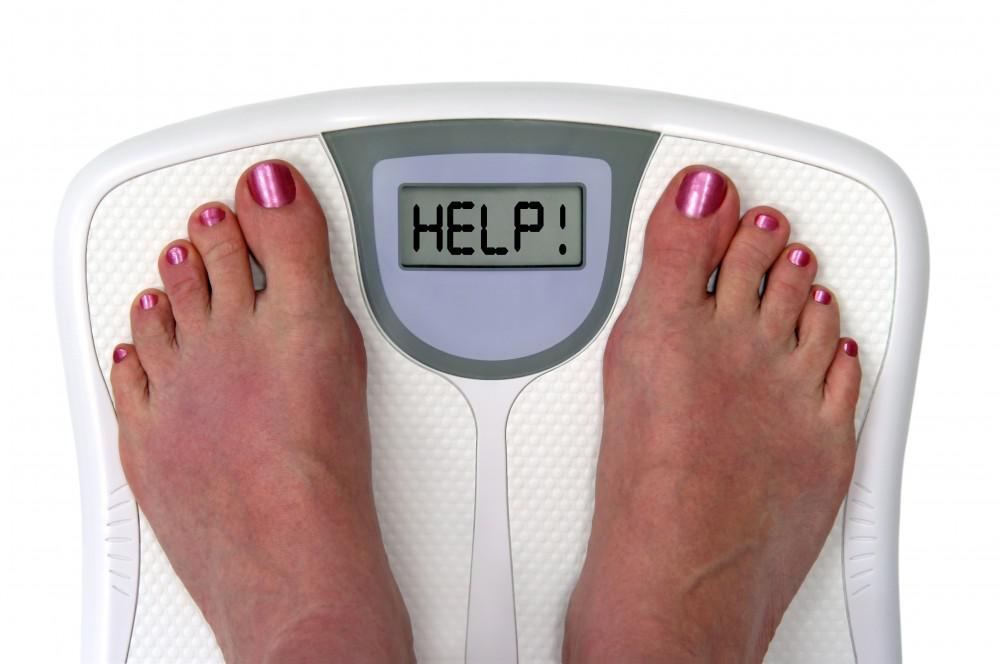
Unexplained Weight Gain Is It Your Thyroid?
Unexplained Weight Gain: Is It Your Thyroid?
Have you been gaining weight even though you are eating the same and staying active? It can be confusing and upsetting when your clothes feel tighter and the scales go up, but nothing in your routine has changed. Sometimes, the cause isn't what you eat or how much you move. It might be something inside your body, such as your thyroid.
The thyroid is a small gland in your neck that helps control how your body uses energy. It does this by producing hormones that affect aspects such as your heartbeat, body temperature, and the rate at which you burn calories. If your thyroid is not working correctly, especially if it is underactive, your body can slow down. This can lead to unexplained weight gain.
In this blog, we will look at how the thyroid works, why it can cause weight gain, what symptoms to look out for, and what you can do if you think your thyroid might be the problem. If you have been gaining weight and nothing seems to help, this information may provide the answers you need.
What Is Hypothyroidism
Hypothyroidism occurs when the thyroid gland does not produce enough thyroid hormones. This means your body slows down because it is not getting the signals it needs to work at the right speed.
When your thyroid is underactive, your metabolism slows down. This can make you feel exhausted and cold. It can also make it harder to lose weight or easier to gain it, even if you are eating the same as before.
Hypothyroidism is more common in women and older people, but anyone can have it. It can happen for different reasons. One common cause is a condition called Hashimoto’s disease. This occurs when your body’s immune system mistakenly attacks the thyroid. Other causes include insufficient iodine in your diet, certain medications, or if you have had surgery or treatment on your thyroid.
Many people do not know they have hypothyroidism at first. The symptoms can start slowly and be mistaken for other conditions, such as fatigue from school, work, or stress. That is why it is essential to recognise the signs and consult a doctor if something does not feel right.
Hypothyroidism and Weight Gain
When your thyroid is not working correctly, your body does not burn energy as fast as it should. This slower process is referred to as a sluggish metabolism. It means your body uses fewer calories, even when you are doing the same things as before. Over time, this can lead to weight gain.
Some of the weight gain from an underactive thyroid is not just fat. It can also be from your body holding on to more water and salt. This is called fluid retention. It can make you feel puffy or swollen, especially in your face or hands.
Even if you are eating healthy food and exercising regularly, you might still gain weight or struggle to lose any. This can be frustrating and confusing. But if your thyroid is the reason, it is not your fault. Your body is simply working more slowly than it should.
The good news is that once the thyroid is treated and your hormone levels return to normal, many people stop gaining weight. Some may even lose a little weight naturally. However, it often takes time, and not all the weight may disappear on its own.
When to Suspect Your Thyroid Is the Cause
If you suspect that your thyroid may be the cause of your weight gain or fatigue, the first step is to consult a doctor. Testing your thyroid is a quick and straightforward process.
Blood Tests
The primary test is a blood test. This checks the level of a hormone called TSH (thyroid-stimulating hormone). TSH tells your thyroid when to make more hormones.
- If your TSH level is high, it typically indicates that your thyroid is not functioning correctly.
- If your TSH level is low, your thyroid is too fast.
The doctor might also check your levels of T3 and T4, which are the main thyroid hormones. Sometimes, they will check for antibodies to see if your immune system is attacking your thyroid.
Physical Check
The doctor may examine your neck to check if your thyroid is swollen or if there are any lumps present. This is called a goitre if it is enlarged.
Extra Tests
If something appears unusual, the doctor may recommend an ultrasound scan. This shows the shape of your thyroid. Most of the time, though, blood tests are all that is needed.
Once the results are ready, your doctor will explain if your thyroid is underactive and what treatment is needed.
Will taking thyroid hormone help me lose weight?
When abnormal blood tests diagnose hypothyroidism, the thyroid hormone does not help with weight loss. The use of thyroid hormone can help those with hypothyroidism improve their symptoms. However, research suggests that the weight change following thyroid hormone use is typically small and often attributed to changes in water retention. Despite being extremely important for your overall well-being, hypothyroidism may not be the magic bullet you were hoping for when losing weight.
Hyperthyroidism and Weight Gain
The term hyperthyroidism refers to a condition in which the thyroid hormone levels are elevated for an indefinite period. An elevated level of thyroid hormone can present symptoms such as nervousness, irritability, increased heart rate, sweating, difficulty sleeping, and muscle weakness, among others. Hyperthyroidism is usually caused by autoimmune conditions called Graves' Disease (the leading cause), toxic nodular or multinodular goitre, and thyroiditis. Additionally, you may develop hyperthyroidism if you take too much thyroid hormone. In addition to weight changes that may result from hyperthyroidism, thyroid hormones can also be associated with metabolic changes. A prevalent condition is that a person may lose weight despite an increase in appetite, which is usually a sign of hypothyroidism.
Can Hyperthyroidism Cause Weight Gain?
Despite being less common, hyperthyroidism can also cause weight gain. This is due to the following reasons:
- Increased appetite - Hyperthyroidism is often accompanied by an increased appetite, which can lead to weight gain. Usually, elevated thyroid hormone levels offset this by increasing the resting metabolic rate, but sometimes weight gain occurs as well.
- As a result of treatment for hyperthyroidism, the weight will typically return to normal once thyroid hormone levels have normalised. The person may continue to eat as much as they did when they were hyperthyroid, which can result in even more weight gain after treatment.
Symptoms of hyperthyroidism can also be treated with a class of medication called beta blockers. It has been found that some beta blockers can lead to weight gain, and this is why some of them are being used to treat hyperthyroidism, so it may be that using these medications for this condition may lead to weight gain as well.
How to Manage Thyroid-Related Weight Gain
Whenever you gain or have difficulty losing weight due to a thyroid disorder, it is essential to ensure that your thyroid condition is being treated appropriately. Blood tests may be necessary to determine thyroid hormone levels; please consult your healthcare provider. You can choose whether your thyroid treatment is adequate by doing this for most people.
Weight should not be significantly affected by thyroid disease once it has been appropriately treated. It would be beneficial to adopt a healthful, low-calorie diet to manage thyroid-related weight gain and increase your physical activity. Stress and sleep are also critical! When it comes to losing and maintaining weight, we often overlook the importance of stress management and adequate sleep.
Frequently Asked Questions
Can an underactive thyroid cause weight gain even with a healthy diet?
Yes, an underactive thyroid can slow down your metabolism, which means your body burns fewer calories even if you eat well and stay active. This can lead to unexplained weight gain caused by hypothyroidism and water retention, not just fat.
How much weight can you gain from hypothyroidism?
Most people with hypothyroidism gain between 2 and 5 kilograms. Some may gain more depending on how severe the thyroid problem is. The weight gain from thyroid problems often includes both fat and fluid.
Will I lose weight once my thyroid is treated?
Some people lose a little weight after starting thyroid hormone replacement like levothyroxine. However, normal thyroid levels alone might not cause complete weight loss. You may still need healthy habits to lose weight with thyroid problems.
What are the early signs of thyroid-related weight gain?
Early signs include slow and steady weight gain without any change in eating or activity. It may also be accompanied by tiredness, dry skin, frequent coldness, and difficulty concentrating. These are early symptoms of an underactive thyroid in adults.
Can children or teenagers develop thyroid problems that lead to weight gain?
Yes, thyroid problems in children and teens can cause weight gain along with slow growth, tiredness, and trouble focusing. It is essential to consult a doctor if a child is gaining weight and exhibiting other signs of thyroid-related issues.
Is it safe to take thyroid pills to lose weight if my thyroid is normal?
No, taking thyroid medicine when your thyroid is healthy can be dangerous. It may cause heart problems, weak bones, and anxiety. You should only take thyroid tablets for weight gain if your doctor has diagnosed a thyroid issue.
How is hypothyroidism diagnosed in someone with unexplained weight gain?
Doctors usually do a blood test to check your TSH and T4 levels. High TSH and low T4 levels often indicate that an underactive thyroid is causing unexplained weight gain. Your doctor may also check for thyroid antibodies to find the cause.
Get Help With Thyroid-Related Weight Gain?
When trying to lose weight and not succeeding as a result of the above efforts, you may need to consider seeking professional help, such as an Obesity Medicine Physician or a Registered Dietitian. These providers can use several evidence-based tools to address biological factors that may be limiting your success with weight loss, including prescription weight loss medications if appropriate.
The Weightloss Coach program may be right for you if you're looking for a sustainable, realistic, and customised program that fits your lifestyle. If necessary, a clinical team will help you lose weight through a combination of physical activity, mindset changes, nutrition, and FDA-approved medications.


